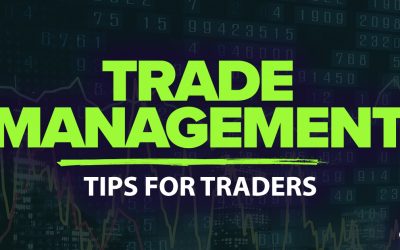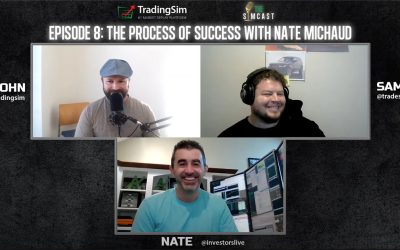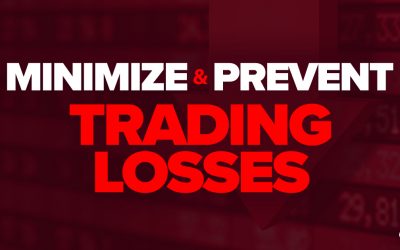The stock market is constantly changing.
If you are fortunate enough to find success as a trader, you shouldn’t get too comfortable. A strategy that works for days, weeks, or months is not guaranteed to work forever.
Career traders who achieve long-term success recognize that the market is dynamic and strategies need to be adapted to changing market conditions. The sooner you learn this lesson, the better.
Forcing a strategy that no longer works will result in giving back hard-earned profits that were acquired during the period when your strategy worked.
In this post, we are going to discuss a few key tips to help you navigate an ever-changing market environment.
Adapt or Perish
Traders react to price action. We do not rely on hope, nor do we project our own biases on a trade.
We take the information at our disposal, analyze it, and create a game plan that allows us to profit.
In order to do this effectively, we need to pay close attention to what is working and what isn’t working.
Adapt to changing market conditions. The alternative could mean the end of your trading career.
View this post on Instagram
What Worked Last Week May Not Work This Week
Market trends change weekly. What worked last week may not work this week. For example, “meme stocks” may be hot one week and dead the next. If you are hunting for the next meme stock breakout during a “hot” period, you may have found yourself an effective strategy. If you are hunting for the next hot meme stock when the market has moved onto new trends, you are fighting an uphill battle.
If you have a great week in the markets, your inclination is to double down on that success next week. That’s a great way to compound gains if your strategy is still effective. If your strategy is no longer effective, you are likely to give back your gains.
Come to the market with a blank slate each week and focus on what is and is not working.
View this post on Instagram
Don’t Try to Outsmart the Market
As traders, we adhere to the thesis that “the market is always right.”
This doesn’t mean that the market is always rational – it simply means that price action speaks loudest.
In order to identify high-probability trades, you need to take the path of least resistance. This means joining trends and going with the flow (vs. fighting it).
It’s not your job to force your ideas and biases on a trade. Do you want to prove you are right or do you want to make money?
If you have a thesis, wait for confirmation. It’s not enough to be right – you need to be right at the right time.
View this post on Instagram
Understand the Market You Are In
Trading strategies need to account for market conditions and trends.
For example, if your strategy is rooted in buying breakouts, you should pay attention to how breakouts are performing in the current market environment.
Are stocks sustaining multi-day breakouts or are most breakouts failing? Are stocks making wild 50%+ moves or are most breakouts conservative?
Understanding market conditions can help you refine your strategy. For example, if multiple stocks are experiencing 50%+ multi-day breakouts, it may be acceptable to buy a stock that ramps 10% in one day. If breakouts are failing or experiencing smaller returns, you may not want to chase a stock that is already up 10%.
View this post on Instagram
Understand The Cycle We’re In
As part of your analysis of market conditions, you should also understand the stages of market/trend cycles.
Trends don’t last forever. Think of a few of the sectors that have been presented trading opportunities in the past couple of years – MJ, EV, oil, meme stocks, tech, etc.
These sectors may be hot for days, weeks, or months, but eventually, the momentum fades and the trading opportunities disappear.
When analyzing opportunities, think about the stage of the cycle we may be in. Sure, you can’t predict this with 100% certainty, but you can still assess it and mitigate risk accordingly.
Take the massive GME move from 2021 as an example. The trade followed a cycle as it broke out from about $25 to $500 in a matter of weeks before returning to about $50 just as quickly.
Traders who played this move (on both the front side and back side) were either early, just in time, or late.
Stocks don’t go straight up or straight down forever. Paying attention to where a stock is in its cycle can help you manage risk and plan more effective trades.
View this post on Instagram
Pay Attention to Big Money
Big plays are usually fueled by big players.
When stocks experience massive breakouts, the breakouts are usually supported by big money. Sure, retail traders play their part, but “big money” accounts for a much larger percentage of daily market volume.
For example, a single hedge fund purchase of a stock can be equivalent to tens of thousands of purchases from retail traders.
Big money often fuels a move and then moves on to the next one. Pay attention to where the big money goes.
View this post on Instagram
Pay Attention to Correlations
When stocks make big moves, there is usually a catalyst. This catalyst can be economic news, market news, company news, etc. It may even be pure speculation or hype.
Regardless, you should know which catalysts are driving the stocks you trade. The catalyst fuels the trend and the trend fuels the movement of individual stocks.
For example, when Bitcoin starts breaking out, it moves a lot of other crypto-related stocks with it. These stocks are moving relative to the Bitcoin movement and remain in play as long as Bitcoin is in-play. If you are trading a Bitcoin-fueled move, you should be paying attention to the underlying catalyst (i.e. Bitcoin price).
The same goes for any other moves. Trading an oil stock, EV stock, etc.? Understand which catalysts are driving the price.
View this post on Instagram
Differentiate Between Luck and Skill
Finding and maintaining trading success requires honest self-analysis. You need to analyze your trades to determine what you are doing right and what you are doing wrong.
This analysis needs to be insightful and honest.
One of the biggest traps traders can fall into (especially newer traders) is conflating luck with skill.
There’s nothing wrong with getting lucky. We’re all in this game to make money, and profit is profit, whether acquired through luck or skill.
That said, the differentiation starts to matter when you consider your future trades. Luck cannot be replicated. It is the product of lucky timing and holds no future value.
If you mistake luck for skill, you garner inaccurate insights from your trade analyses and start building bad habits.
Let’s illustrate this concept with a very basic example.
Assume you go to Twitter every morning and buy 1,000 shares of the first stock you see everyone tweeting about. You repeat this process 10 times and generate a nice profit each time. If your takeaway is that, “buying the first stock I see on Twitter is the best way to get rich in the market”, you are setting yourself up for failure. There’s a 0% chance this strategy works out long-term.
Short-term success is great and luck should be embraced with open arms. That said, luck is random and fleeting.
As traders, our goal is to develop strategies that will generate profits for the lifetime of our trading careers. In order to do this, we need to accurately determine why certain trades work and whether or not they are likely to work again. Simply put, we need to build and refine a skillset that will continue to help us generate profits over time.
View this post on Instagram








Thank you Nate for taking your time in doing this explanations. All you say is true. The market is dynamic.
Thanks Nate for sharing your insights.
Thank you for all what you do to help new traders make money and avoid to lose their capital.
Thanks Nate, great points and good timing for me! I have had a good run the last 3 weeks. However, I told myself this morning that Monday morning and coming week is not the past 3 weeks!
Thank you Nate for sharing always very good educational stuff.